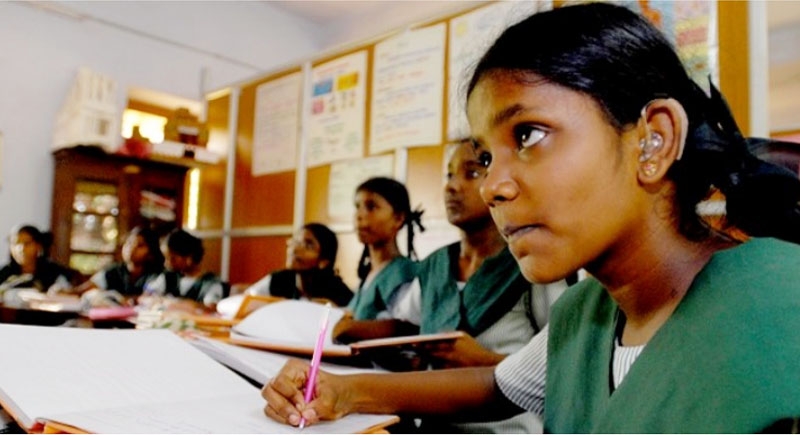65 projects of Rs 140 Cr approved for technical education under ‘Uchhatar Avishkar Yojana’
New Delhi, April 6: With a view to promote innovation of a higher order that directly impacts the needs of the Industry and thereby improves the competitive edge of the Indian manufacturing, a scheme called “Uchhatar Avishkar Yojana (UAY)” was approved by the Government.

“Towards these ends, the Council operates three schemes, namely, Modernization and Removal of Obsolescence (MODROBS), Research Promotion Scheme (RPS) and Nationally Coordinated Projects (NCP).”
Singh further said, the project envisages collaboration between academia and industry –within or outside India. Under UAY Phase- I, 87 projects at a cost of Rs. 265.59 Crore with joint funding by MHRD, participating Ministries and Industry in the ratio of 50:25:25 have been approved. Under UAY Phase-II, the Apex Committee of UAY in its meeting held on 20.11.2017 has approved 65 projects at a cost of Rs. 139.48 Crore for a period of 3 years.
In order to enhance the quality of technical education in the country, the Government is taking the following steps: -
(i) Higher Education Financing Agency (HEFA): This is a not-for-profit organization that will leverage funds from the market and supplement them with donations and CSR funds.
(ii) PM Research Fellowship: Under this scheme, the best students who have completed or are in the final year of B. Tech or Integrated M.Tech or M.Sc. in Science and Technology streams from IISc/IITs/NITs/IISERs/IIITs will be offered direct admission in PhD programme in the IITs/IISc.
(iii) Smart India Hackathon (SIH): SIH is being undertaken by MHRD on yearly basis to identify new and disruptive digital solutions for solving the challenges faced by our country.
(iv) Setting up of virtual classrooms and massive open online courses (MOOCs): Virtual classrooms under SWAYAM and MOOCs are newer forms of technology-enabled learning which help to broad-base quality education across all geographical regions.
(v) National Digital Library: Ministry of Human Resource Development under its National Mission on Education through Information and Communication Technology has initiated the National Digital Library (NDL) pilot project to develop a framework of virtual repository of learning resources with a single-window search facility.
(vi) Training and Research in Frontier Areas: It is proposed to establish centers of excellence for advanced training and research in the frontier areas including biotechnology, bioinformatics, nano-materials, nano-technologies, mechatronics, higher performance computing engineering/industrial design, etc.
(vii) Setting up of Inter-Institutional Centres, Creation of Excellence Clusters and Networks, Establishing Alliances across Institutions: This includes provision for Setting up of Inter Institutional Centers, Creation of Excellence Clusters and Network, Establishing Alliances Across Institutions.
(viii) Startup India Initiative in Higher Educational Institutions: The erstwhile scheme “National Initiative for Technology Transfer” has been revamped as Startup India Initiative in Higher Education.
(ix) Implementation of the IMPRINT Research Initiative (Impacting Research Innovation and Technology): This scheme is meant for adopting engineering and technology as the vehicle to addressing the societal needs and achieving national prosperity.
(xi) Technical Education Quality Improvement Programme (TEQIP): This is a World Bank funded project to enhance quality and equity in selected engineering education institutes and improve the efficiency of the engineering education system in focus States/ Union Territories.
(xii) Research Parks: In order to provide impetus to research in the country, the Government has approved setting up of 9 Research Parks one each at IIT Madras, IIT Kharagpur, IIT Bombay, IIT Gandhinagar, IIT Delhi, IIT Guwahati, IIT Kanpur, IIT Hyderabad, and IISc Bangalore.
(xiii) Quality Initiatives by AICTE: AICTE has approved an action plan focusing on Planning, Selection, Induction Training, Curriculum Revision, Mandatory Internships, Industry Readiness, Promotion of Innovation & Start-ups, Exam Reform, Teachers’ Training and Mandatory Accreditation.